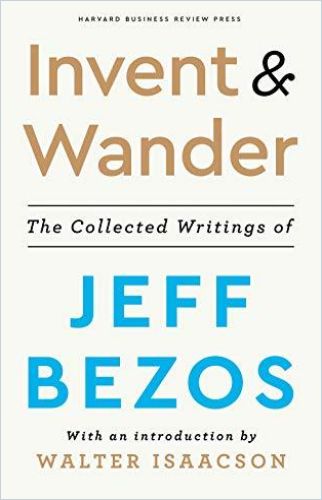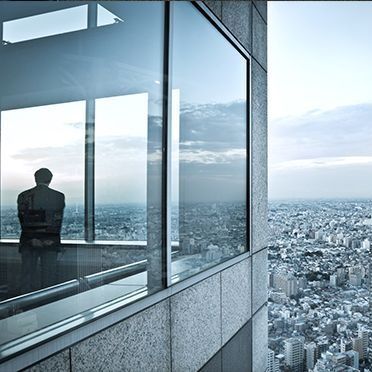Jeff Bezos offers a window into his thinking through his interviews, speeches and letters to shareholders.

Bezos Speaks!
Jeff Bezos, the world’s richest man, is worth north of $100 billion. In this collection of interviews, speeches and letters to shareholders, Bezos analyzes his successes and setbacks. He proves he is a master at combining technical analysis with creative thinking.
“Those with an interest in business history will find that charting the evolution of Amazon from annual letter to annual letter is a fascinating exercise in constant self-invention,” the Kirkus Reviews reported. The Washington Post wrote, “The interview and speech excerpt section…contains flesh-and-blood details about the man and not just Amazon.”
Choices
Bezos considered the theme of gifts and choices after excelling at Princeton, marrying and securing work at a New York financial firm.
Cleverness is a gift. Kindness is a choice.Jeff Bezos
When Bezos saw the internet taking off, he hatched a plan to sell books online. He notes that his boss discouraged him from taking such a risk because he already had a cushy job. Bezos decided he would regret not pursuing his dream – to build the world’s largest bookstore by applying new technology to an old business model.
Resilience
Bezos offers a formative tale from his early life. The remote location of his grandfather’s Texas ranch meant his grandpa had to improvise solutions to problems. In a freak accident, Bezos discloses, his grandfather caught his thumb in a ranch gate and stripped off the skin. Bezos’ grandfather cast away the skin; nurses had to return to the ranch with him to look for the skin, so doctors could reattach it.
The whole point of moving things forward is that you run into problems, failures, things that don’t work.Jeff Bezos
Bezos sees the incident as an apt metaphor for building a business: Failure is frequent, resilience is a requirement and adaptation is a must.
Newspapers
Bezos insists he never thought about owning a newspaper. But then Don Graham, owner of The Washington Post, told Bezos the Post didn’t need a newspaperman – it needed an owner who understood the internet. Bezos says he decided to buy the Post because he sees it as an institution that is crucial to American democracy.
Bezos breaks down how he changed the Post’s focus to give it an international perspective. He explains that the internet allows any publisher to distribute globally for free, whereas, before the internet, papers didn’t expand internationally due to prohibitive production costs, such as maintaining multiple, expensive international printing plants.
But, Bezos happily details, the internet delivers a national and international audience for the same cost as a local one. In its print heyday, the Post served a small group of readers and generated significant revenue per reader. After he changed the focus, it came to serve larger numbers of readers though it earns less money per customer. The strategy worked, and Bezos is proud that the Post became profitable.
Missionaries
Bezos characterizes missionaries as those who believe in the mission of their organization. Mercenaries, whom he reviles, labor for a paycheck and perks. That’s why, Bezos makes clear, he doesn’t use generous benefits to woo workers.
We pay very competitive compensation at Amazon, but we have not created the kind of country club culture where you get free massages and whatever the perks of the moment are.Jeff Bezos
Regarding making decisions about acquisitions, Bezos shares that he first judges whether the founder of the company he’s evaluating is a mercenary or a missionary. And, he underscores, missionaries make more money in the long run. Bezos cites Whole Foods founder John Mackey as exemplifying a business missionary because Mackey believes in making healthful food widely available.
Decision-making
Bezos concludes that decision-making becomes bureaucratic when leaders make the mistake of treating all decisions as equally important. He finds that only a few decisions are “one-way doors” – high-stakes moves that he can’t easily reverse. For such choices, Bezos regards himself as his company’s “chief slowdown officer” – making sure that Amazon arrives at major decisions deliberately and patiently only after analysis and debate.
You do not want to make one-way door decisions quickly.Jeff Bezos
He counsels leaders to make lower stakes “two-way door” decisions quickly and with a minimum of debate.
Guidance
Bezos offers brief principles in abundance: go to bed early and sleep eight hours; be willing to wander and think in a nonlinear way; don’t fear failure; run big organizations as if they’re small; focus obsessively on your customer; and avoid “me-too” products by always embracing something different, as Amazon did by acquiring Whole Foods.
Sustainability
Bezos boasts that in 2019, Amazon became the first organization to sign the Climate Pledge and that it produces 40% of its energy from renewable sources using 15 large, Amazon-owned solar and wind farms, as well as green energy plants installed on the roofs of its distribution centers worldwide.
We want to say to other companies that if a company of Amazon’s complexity, scale, scope and physical infrastructure can do this, so can you.Jeff Bezos
Bezos stresses that Amazon aims to produce 80% of its power from renewable sources by 2040. He concedes that its current delivery vans burn gas, but celebrates that Amazon has ordered 100,000 electric vans.
Disconnected
This isn’t a complete, holistic work. It’s a collection of fragments – some large, some small – thrown together with little narrative sense and no dramatic tension. Walter Isaacson – author of Jobs, The Code Breaker and Einstein, among others – does his best to connect all these dots in his lengthy, engaging introduction. But even Isaacson cannot make the material less superficial or generate greater insight into Bezos than Bezos himself offers – and Bezos does not offer much. But – and this is a huge but – Bezos has never offered written business advice before, so this basket of assorted ideas serves as the next best thing. And, unsurprisingly, when Bezos does relate personal stories or provide clear business counsel, he’s fascinating.
Other books concerning Jeff Bezos and Amazon include Brad Stone’s Amazon Unbound and The Everything Store; and Steve and Karen Anderson’s The Bezos Letters.






